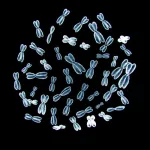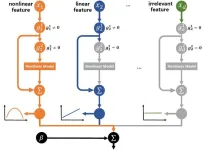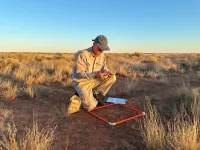(Press-News.org) FDA BANS RED DYE 3 IN FOOD AND INGESTED DRUGS
Citing two studies linking Red Dye 3 to cancer in laboratory male rats, the FDA today revoked authorization for the use of the dye in food and ingested drugs. The move came in response to a 2022 color additive petition. “This is long overdue,” said Tracy Crane, Ph.D., RDN., director of Lifestyle Medicine and Prevention at Sylvester. “Red Dye 3 has been banned for use in cosmetics and topical drugs for more than three decades,” she said. “Yet it gives more than 9,000 foods in the United States their red coloring. These colorful foods and drinks are particularly appealing to young children,” she added. “This is an important step forward in addressing modifiable risk factors that have the potential to reduce cancer risk.”
ALCOHOL & CANCER RISK/LIFESTYLE MEDICINE
Alcohol and Cancer Risk: Sylvester Physicians Can Discuss Call for Cancer Warning Labels
Tracy Crane, Ph.D., is available to address the Surgeon General’s recent report calling for cancer warning labels on alcohol. In her role as director of Lifestyle Medicine at Sylvester and co-lead of its Cancer Control Research Program, she examines the critical roles of nutrition and exercise on cancer prevention, treatment outcomes and long-term quality of life. about her research here. Additional Sylvester experts in breast, liver, pancreatic and other cancers are also available for interviews.
Mocktails, Anyone? Sylvester Experts Suggest Healthier Alternatives to Alcohol
With the Surgeon General’s recommendation that alcoholic beverages contain cancer warning labels due to mounting evidence showing it as a Group 1 carcinogen, Sylvester physicians suggest people consider mocktails – drinks without alcohol. Doing so could reduce their risk of developing seven known cancer types. Several Sylvester Cancer experts are available to comment.
CANCER SURVIVORSHIP
Sylvester Researcher Focuses on Cancer Survivorship and Preventing Recurrence
Princess Kate announced recently that her cancer is in remission and she is now focused on recovery, adjusting to her new normal. What does remission mean for her and other cancer survivors? Frank J. Penedo, Ph.D., co-lead of Sylvester’s Cancer Survivorship and Supportive Care Program, can address the adjustments and steps that cancer patients face while undergoing treatment, moving to the recovery phase or even after treatment has been completed.
LUNG CANCER
Sylvester-Led Study Highlights Global Trends in Risk Factors Linked to Lung Cancer Deaths
Lung and related cancer deaths decreased in the world’s 10 most populous countries over the past 40 years, but a pressing need still exists for public health measures to combat cancer deaths and risk from tobacco use and exposure to air pollution and asbestos, according to a new study from Sylvester Cancer and collaborators. The study, published in eClinicalMedicine, part of The Lancet, analyzed tracheal, bronchial and lung (TBL) cancer data from the Global Burden of Disease database.
GYNECOLOGIC CANCER DISPARITIES
Sylvester GYN Cancer Researcher Serves as Mentor to Aspiring Specialists
Matthew Schlumbrecht, M.D., M.P.H., never expected to become a gynecologic oncologist. Now, the Sylvester physician-scientist is not only a leader in the field, but also a trainer/mentor to other physicians seeking to enter his cancer specialty. Schlumbrecht studies disparities in gynecologic cancer, especially endometrial cancer, or cancer of the uterine lining. Working together with Sophia George, Ph.D., and colleagues with the Transatlantic Gynecologic Cancer Research Consortium, he’s focused on the genomics and genetics of this cancer in women of African ancestry.
CANCER RECOGNITION
Distinguished Sylvester Researcher Honored With Endowed Chair
Daniel Isom, Ph.D., has been honored with The Pap Corps Champions for Cancer Research Endowed Chair at Sylvester. His impactful research in molecular and cellular pharmacology has contributed to development of promising cancer-fighting drugs. The Pap Corps, which has been supporting cancer research for more than 70 years, has been an invaluable partner to Sylvester, raising more than $110 million to fuel scientific progress through vital translational research.
CANCER PHILANTHROPY
Sylvester Cancer, Miller School Benefit From Palm Beach Philanthropists’ Gift
Sylvester Cancer and two other critical health areas within the University of Miami – the Miller School of Medicine and the UM School of Nursing and Health Studies – are the beneficiaries of a $2.5 million donation from Vahan and Danielle Gureghian, owners of a home health care services agency. The gift, celebrated at a recent reception hosted by the Gureghians at their Palm Beach home, includes $1 million for the Sylvester Director’s Innovation Fund to further its extraordinary cancer care and research.
on the InventUM blog and follow @SylvesterCancer on X for the latest news on its research and care.
# # #
END
KYOTO – An international team of researchers has taken an important step toward understanding how gene expression is controlled across the human genome. A new study has comprehensively analyzed “cis-regulatory elements” (CREs), which are the DNA sequences that regulate gene transcription. This work sheds light on how these elements contribute to cell-specific gene expression and how mutations within them may influence health and disease.
CREs, including enhancers and promoters, are essential for controlling when and where genes are ...
In a study of more than 5,000 mothers and their children, exposure to air pollution during the three months before pregnancy predicted higher child body mass index (BMI) and related obesity risk factors up to two years of age. Findings from the study, which was supported by the National Institute of Environmental Health Sciences, were published in the journal Environmental Research.
Past research has linked air pollution exposure during pregnancy to a broad range of health problems in children, including respiratory ...
Interpretability has drawn increasing attention in machine learning. Partially linear additive models provide an attractive middle ground between the simplicity of generalized linear model and the flexibility of generalized additive model, and are important models for addressing the two interpretability problems of feature selection and structure discovery. The existing partially linear additive models still have various imperfect performances in terms of fitting ability.
To solve the problems, a research team lad by Han LI published their new research on 15 December 2024 in Frontiers of Computer Science co-published by Higher Education Press and Springer Nature.
The ...
Researchers have used dung records to create high-resolution maps of herbivore distribution around the world. Their new study, recently published in Nature Food, reveals a strong positive relationship between dung presence and grazing pressure, meaning the amount of dung found in a particular location could help us understand approximately how many herbivores live there.
Many people consider dung simply as the manure left behind by horses and cows at country shows, or something to be avoided when you visit the cousins’ farm. But dung is actually an important resource for millions of people worldwide.
Dung ...
Senior midwives and researchers with experience in criminal and social justice are among those calling for improved maternity provision for pregnant women in UK prisons.
In an article published by The BMJ today, Laura Abbott and colleagues highlight gaps in clinical care for pregnant women and say the systemic problems need tackling urgently to protect the health of pregnant women, new mothers, and babies while in criminal justice settings.
Figures from April 2023 to March 2024 show that 229 pregnant women ...
The UK needs an overarching national strategy to tackle alcohol related harms, argue experts in The BMJ today, as deaths from alcohol in England reach their highest level on record.
Julia Sinclair at the University of Southampton and colleagues warn that successive government cuts have led to reduced provision and quality of alcohol treatment, and say sustained funding is needed for screening and care, while industry must also shoulder some of the costs.
Alcohol is widely available and drunk by around 80% of adults in the UK and is now well established as ...
Regular aerobic exercise could significantly reduce disease markers associated with Alzheimer’s, new research led by scientists at the University of Bristol (UK) and the Federal University of São Paulo (Brazil) has found. The findings provide new hope in the battle against this devastating disorder.
Published in the journal Brain Research, the study highlights how physical activity not only protects healthy brain cells but also restores balance in the aging brain.
The research focused on ...
Cambridge researchers are leading the first phase of a new research project that will lay the groundwork for future studies into the impact on children of smartphone and social media use.
The work has been commissioned by the UK government’s Department for Science, Innovation and Technology after a review by the UK Chief Medical Officer in 2019 found the evidence base around the links to children’s mental health were insufficient to provide strong conclusions suitable to inform policy.
The project – led by a team at the University of Cambridge, in collaboration with researchers at several leading UK universities ...
DARIEN, IL — The American Academy of Sleep Medicine Foundation is proud to announce a partnership with the Howard University Medical Alumni Association to support medical students at Howard University. Through the HUMAA scholarship program, the AASM Foundation is sponsoring five scholarships, each valued at $3,000.
“By supporting medical students at Howard University, we’re empowering the next generation of medical professionals who will shape the future of health care,” said Dr. R. Nisha Aurora, president of the AASM Foundation. “We’re also hoping to inspire students to consider careers ...
As climate change drives increasingly severe hurricanes, U.S. coastal communities are bearing the brunt of mounting losses. With regulations failing to curb the damage, homeowners have become the front line of defense — but their efforts often fall short, a recent study reveals.
Led by Tracy Kijewski-Correa, professor of engineering and global affairs at the Keough School of Global Affairs at the University of Notre Dame, the study, published in the International Journal of Disaster Risk Reduction, explored how homeowners respond in the aftermath of hurricanes when reconstruction becomes ...




